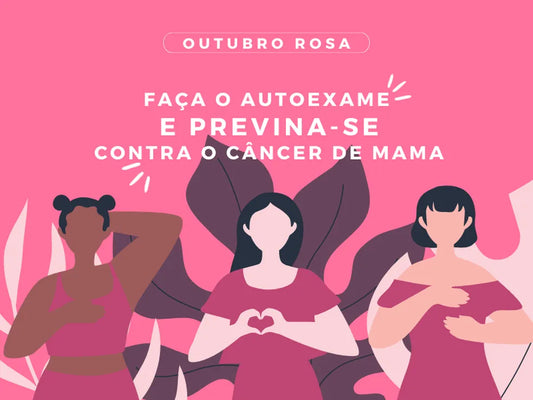We celebrate achievements and talk about the scourge of menstrual poverty
It was more than a century ago, in 1911, that International Women's Day was celebrated for the first time, with the aim of achieving equal rights between men and women around the world. The UN declared the year 1975 as “International Women's Year” and, from then on, March 8th was made official as International Women's Day. This day represents a crucial moment to celebrate female achievements throughout time and reflect on the challenges that persist.
Women's Day has deep roots in the fight for equality and social justice. From the textile workers' strike in 1857, to the achievements of the feminist movement throughout the 20th century, this is a date that represents the strength and perseverance of women in the fight for their equality rights, in life and in society.
Women have made important advances in recent decades, however there is still much to be done.
In this article we also talk about the scourge of menstrual poverty, a female issue, of great relevance and great urgency to find solutions.
Period poverty refers to the lack of access to basic menstrual products, such as pads and tampons, due to lack of financial resources or lack of information. This is a sad reality, which impacts the health, education and well-being of many women and girls, perpetuating gender inequalities.
Period poverty is a real problem that affects thousands of women and girls, preventing them from fully participating in social, school and professional life. There are serious consequences related to menstrual poverty, such as:
Abstention from school/work: Girls and women may miss school or work during menstruation because they do not have access to menstrual products.
Health problems: Poor menstrual hygiene can lead to infections and other health problems.
Low self-esteem: Period poverty can lead to feelings of shame and isolation.
‘’Ashamed, sad, bad, dirty, vulnerable, disgusting, uncomfortable, useless, different - were some of the words used by the girls to describe how they felt about missing classes because they couldn't buy menstrual products'' (read here) - study carried out by Spirituc Investigação Aplicada in February 2024.
‘’Lack of money to buy menstrual hygiene products is leading to one in ten Portuguese girls aged 18 to 24 missing classes because they cannot cope with their periods. Almost 1/4 admit to having already resorted to other solutions such as a second pair of underwear, cotton, old clothes or socks’’ (read here) - study carried out by Spirituc Investigação Aplicada in February 2024.
Fighting menstrual poverty is a collective task! This is a problem that directly influences equal opportunities between men and women.
Fortunately, we are already seeing changes and there are initiatives underway, not only around the world, but also in our country.
‘’Free feminine hygiene products in all schools in New Zealand’’ (reads here)
‘’In November, Scotland became the first country in the world to offer free feminine hygiene products to anyone who needed them, including in public places.’’ (it reads here)
Government programs and NGO initiatives are slowly beginning to distribute sanitary pads, tampons and, in some cases, free reusable menstrual cups to vulnerable women and girls in schools.
‘’The Almada City Council began distributing menstrual kits, with reusable products, to schools in the municipality. This Thursday, February 22nd (2024), around 40 students received a set of products. Now the municipality wants to expand the initiative and offer them to 900 students, from the 7th to the 12th year. The kit contains two reusable sanitary pads and a menstrual cup. The first was distributed in a school in Costa da Caparica. The products were chosen to combat “period poverty and do so in an environmentally conscious way”. (read here)
‘’The Municipality of Tavira started distributing Menstrual Eco-Kits to all those registered in the Fora do Lixo Project – Axis 2 “Menstrual Products”. Each participant was given a menstrual eco-kit consisting of 1 menstrual cup, 2 reusable sanitary pads, 1 information guide and 1 reusable bag. The Project aims to reduce the use of disposable menstrual products, encouraging the use of reusable menstrual products; demystify the topic of menstruation and the use of reusable menstrual products; inform the community, in particular the female community, about healthier, more economical and sustainable ways of managing menstruation’’ (read here).
‘’Lisbon Municipal Assembly approves the distribution of reusable menstrual products in schools. To “promote equal access to health and the promotion of sustainable consumption habits”, the socialists' proposal envisages that the more than 100 schools in the municipality distribute reusable products, instead of disposable ones, such as cups and sanitary pads, to young women who study in Lisbon, a measure that Scotland It is to New Zealand have already recently implemented at national level.’’ (reads here)
It was in 2022. Implementation is awaited…
Campaigns that inform about the importance of menstrual hygiene and combat the stigma surrounding menstruation.
''In addition to the free distribution of reusable feminine hygiene products, namely reusable cups and pads in public schools in the municipality of Lisbon, the approved recommendation recommends that the City Council carry out awareness campaigns in schools, carried out by health professionals from the health center or family health unit, for menstrual hygiene, in order to combat stigma and misinformation on the topic.'' (reads here)
It was in 2022. Implementation is awaited…
Research and development of innovative solutions is ongoing, new technologies and more accessible and sustainable menstrual products are now available and others are in development.
We all have the right and duty to participate and combat this scourge!
On International Women's Day, may this manifesto be heard again and may solutions be found as quickly as possible!
Together, we can build a fairer and more equal future for all women and girls!
Flow is a brand of intimate hygiene products, an educational brand and we want to help transform the way we act in the world!
Are you coming with us?
https://ohyourflow.com
Margaret L.
Sources:
https://cm-tavira.pt/site/noticia/projeto-fora-do-lixo-inicia-distribuicao-de-eco-kits-menstruais/
https://www.am-lisboa.pt/101000/1/017542,032022/index.htm


